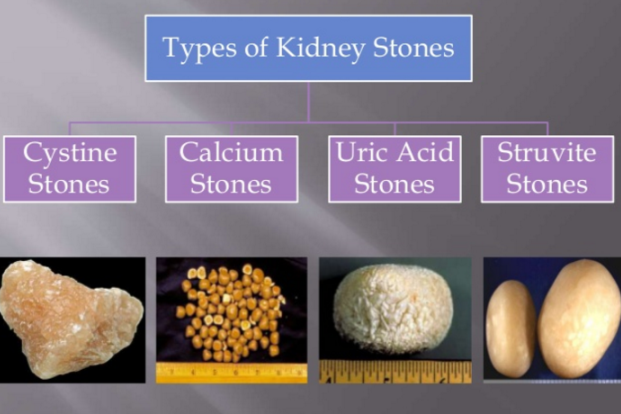Kidney Stones vs UTI: Vital Information on Therapy Choices and Prevention
Kidney Stones vs UTI: Vital Information on Therapy Choices and Prevention
Blog Article
Discovering the Symptoms and Causes of Kidney Stones in Comparison to Urinary System System Infections: A Thorough Overview
The expedition of kidney rocks and urinary tract infections (UTIs) reveals an intricate interaction of signs and symptoms and underlying causes that necessitate cautious examination. What are the key distinctions in their signs and symptoms, and exactly how might these inform therapy techniques?
Overview of Kidney Stones
Kidney rocks, likewise called kidney calculi, kind when specific compounds in the urine crystallize and accumulation, resulting in the growth of tough deposits within the kidneys. These stones can differ in dimension, ranging from a grain of sand to a golf ball, and can be made up of different materials, the most usual being calcium oxalate, uric acid, struvite, and cystine. The development of kidney stones is influenced by numerous variables, consisting of nutritional behaviors, fluid consumption, and genetic predisposition.
Signs of kidney rocks might include severe discomfort in the back or side, blood in the urine, queasiness, and constant urination, specifically as the stone relocates via the urinary system tract. Medical diagnosis generally entails imaging research studies such as ultrasound or CT scans, along with urinalysis to determine the rock's make-up.
Treatment alternatives vary based upon the size and sort of rock, as well as the seriousness of signs and symptoms (Kidney Stones vs UTI). Small rocks may pass naturally with raised fluid consumption, while bigger rocks may call for medical interventions such as lithotripsy or medical elimination. Recognizing the pathophysiology and danger elements related to kidney stones is essential for effective avoidance and monitoring
Summary of Urinary System System Infections
Urinary system infections (UTIs) are common bacterial infections that influence any component of the urinary system, including the kidneys, ureters, bladder, and urethra. They predominantly happen when germs, typically from the gastrointestinal tract, go into the urinary system, leading to inflammation and infection. UTIs are categorized into two major types: straightforward and difficult. Straightforward UTIs commonly occur in healthy and balanced individuals with typical urinary tracts, while complex UTIs may occur in individuals with underlying problems, such as architectural irregularities or compromised body immune systems.
The frequency of UTIs is especially greater in women than guys, mostly because of physiological differences, such as a much shorter urethra. Threat variables include sex-related activity, specific contraceptive methods, urinary retention, and dehydration. The medical diagnosis of UTIs is typically validated via pee tests, which might disclose the presence of microorganisms, white blood cells, or red cell.

Signs of Kidney Stones
The discomfort connected with kidney stones can materialize in different ways, often leading people to look for clinical interest. Among one of the most usual signs is extreme pain, typically localized in the lower back or side, which might radiate to the abdomen or groin. This discomfort, usually referred to as sharp or cramping, can occur suddenly and may vary in intensity.
In addition, people may experience hematuria, or blood in the pee, which can vary from microscopic total up to noticeable staining. This symptom may be accompanied by modifications in urinary practices, such as enhanced regularity or seriousness, have a peek at this website in addition to discomfort during peeing. Queasiness and vomiting are likewise prevalent, commonly arising from the body's reaction additional resources to extreme pain.
In some instances, individuals might experience high temperature and cools, specifically if an additional infection develops because of the blockage triggered by the rocks. Generally, the combination of serious discomfort, hematuria, modified urinary system patterns, and gastrointestinal signs and symptoms can offer substantial understanding right into the existence of kidney stones, necessitating prompt medical evaluation and treatment. Understanding these signs is important for timely medical diagnosis and efficient management of the condition.
Signs And Symptoms of Urinary System Infections
Infections within the urinary system system often present a series of distinctive signs and symptoms that can considerably influence day-to-day life. One of the most usual signs and symptoms consist of a persistent impulse to pee, usually gone along with by a burning feeling throughout urination, referred to as dysuria. Individuals might additionally experience raised regularity of peeing, producing little quantities of urine each time.
Other remarkable symptoms include over cast or smelly urine, which might indicate the existence of germs or pus. In some instances, urine might show up red or pink due to the visibility of blood, a problem called hematuria. Additionally, individuals may experience pelvic discomfort or stress, which can even more exacerbate the sensation of necessity.
Systemic signs may likewise show up, such as fever, cools, and exhaustion, especially if the infection has risen to the kidneys. It is vital to recognize these signs early, as neglected urinary system infections can result in a lot more serious difficulties. Kidney Stones vs UTI. Prompt clinical interest is advised when these signs and symptoms are observed, allowing for proper diagnostic assessment and therapy to minimize pain and stop more wellness problems
Sources Of Each Condition
Regularly, kidney rocks and urinary system tract infections develop from unique yet occasionally overlapping reasons that can influence individuals differently. Dehydration, not enough liquid consumption, and high-sodium diets can aggravate these problems, advertising condensation within the urinary system.

Understanding these distinctive reasons is critical for avoidance and therapy. Kidney Stones vs UTI. While lifestyle modifications might reduce the risk of kidney stones, suitable hygiene and prompt therapy of urinary tract infections are vital for lowering their reappearance and associated difficulties
Verdict
In recap, kidney rocks and urinary system tract infections existing distinct signs and underlying reasons. Kidney rocks are defined by serious pain and metabolic aspects, while urinary system system infections primarily include bacterial infections leading to urinary system seriousness and pain. Although both problems can cause hematuria, their development systems vary substantially. Understanding these distinctions is important for efficient medical diagnosis and treatment, ultimately improving patient outcomes for those influenced by either problem.
The exploration of kidney rocks and urinary system system infections (UTIs) discloses a complex interplay of signs and symptoms and underlying reasons that require mindful assessment.Urinary system system infections (UTIs) are usual microbial infections that affect any kind of part of the urinary system, including the kidneys, ureters, bladder, and urethra.Regularly, kidney rocks and urinary tract infections occur from unique yet occasionally overlapping reasons that can influence people differently.In summary, kidney stones and urinary system system infections existing unique symptoms and underlying reasons. Kidney stones are defined by serious discomfort and metabolic aspects, while urinary system tract infections largely include microbial infections leading to urinary system urgency and discomfort.
Report this page